Campus protests: Students fighting for free speech and the eradication of racism should be working together - not against each other
Out of America: It’s a disturbing reflection of where power resides at a US place of learning that it took a downing of tools by the football team, rather than a hunger strike, to get results

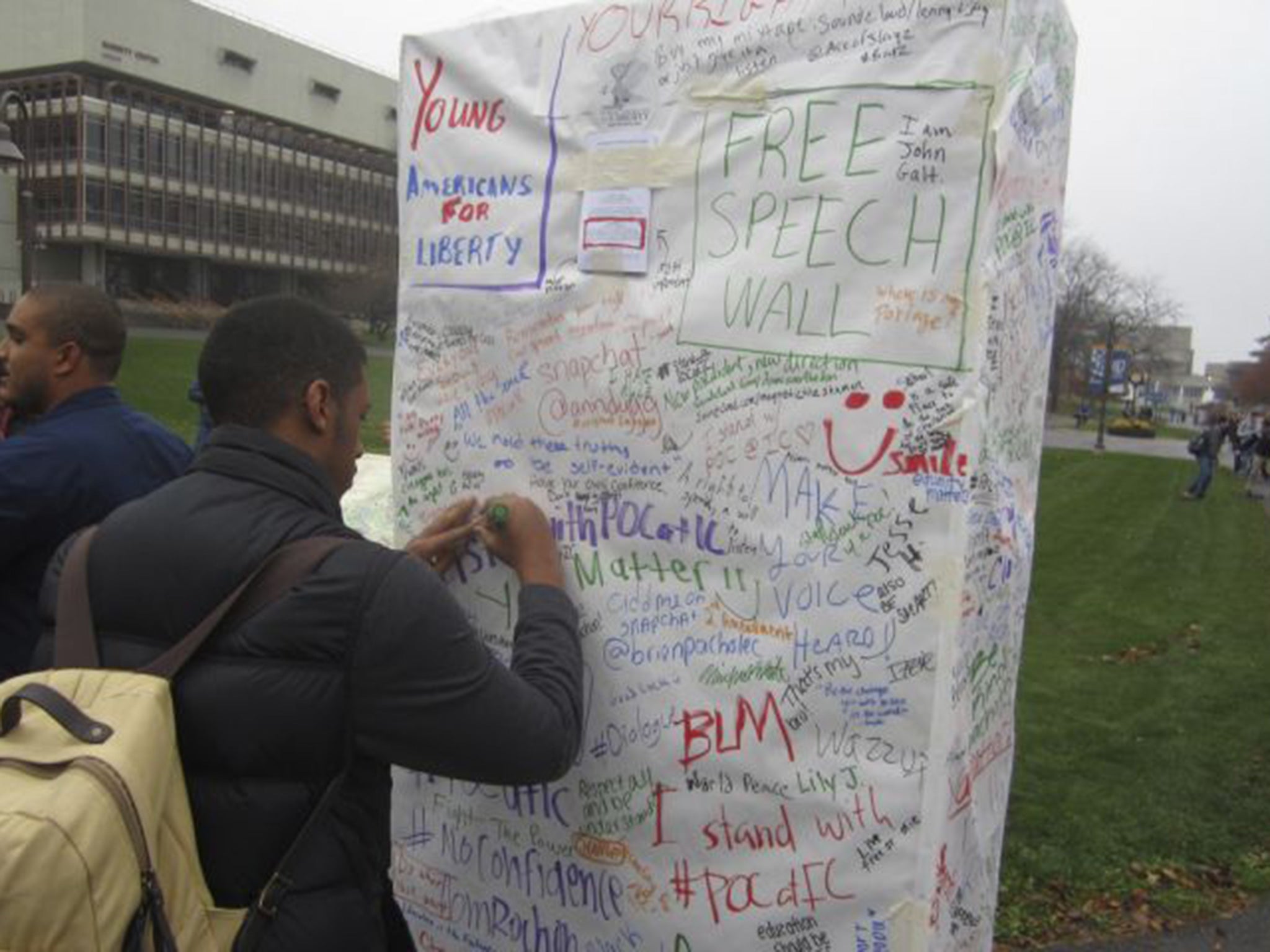
What happens when two of America’s most hallowed principles, the fight against racism and intolerance and the right to freedom of expression, crash into each other on campus? As events at the University of Missouri (known here as “Mizzou”) and at Yale suggest, it ain’t pretty.
First a re-cap. After months of controversy over ugly episodes of racism at Mizzou, which included a hunger strike by one student, a threatened strike by the college’s football players last week led to the resignation of the university’s president – and to the harrassment of reporters covering the protests. It’s a disturbing reflection of where power resides at a US place of learning that it took a downing of tools by the football team, rather than a hunger strike, to get results. But, given the money generated by college sport in the United States, hardly a surprise.
From the state-run University of Missouri in the heartlands to the cloisters of private, Ivy League Yale in old money New England – and another tale, of how a sense of marginalisation among minority students at a traditionally Wasp (white Anglo-Saxon Protestant) institution turned into a display of foul-mouthed outrage at a perceived dismissal of the concerns.
The flash point was an email from Erika Christakis, who helps her husband, Nicholas, run a residence at the university. It came in response to a warning to students from the Yale administration to avoid Halloween costumes featuring turbans, headdresses and war paint, blackened faces, or other fancy dress that might be deemed offensive. After pondering the matter with her husband, she sent some thoughts to her charges, in tactful, even deferential, language.

“I wonder, and I am not trying to be provocative: Is there no room any more for a child or young person to be a little bit obnoxious ... a little bit inappropriate or provocative or, yes, offensive?” Increasingly, she continued, American universities “seem to have become places of censure and prohibition. And the censure and prohibition come from above, not from yourselves! Are we all okay with this transfer of power? Have we lost faith in young people’s capacity – in your capacity – to exercise self-censure … and also in your capacity to ignore or reject things that trouble you?”
For this, Nicholas Christakis found himself surrounded by a student mob. He was supposed to create a home for the students, one girl yells at him, but “you have not done that”. Christakis politely demurs. “Then why the f*** did you accept the position,” she screams. “Who the f*** hired you?” She ends her tirade, “You should not sleep at night. You are disgusting.”
Life’s not easy right now for American students, in particular those from less prosperous backgrounds. The transition from high school to a college, sometimes far from home, has always been a jarring step into a less sheltered world. Beyond doubt, Mizzou is but one of many US universities that suffer from racism. Some of those Halloween costumes at Yale certainly could be construed as racist. There reportedly was also at least one Halloween party for “white girls only”.
Add to that the worsening problem of soaring tuition fees and debt that may take a student half a lifetime to pay off, especially in today’s sluggish economy. Total student debt has reached a mind-boggling trillion-plus dollars; the issue prompted a separate round of demonstrations at campuses around the country last week.
But something is awry. Erika Christakis has a point. Why can’t students, especially the brightest ones that get into Yale, work things out among themselves? They consider themselves adult. So why do they expect those on high to remove such problems by edict? Do students need to be coddled and cossetted? This isn’t to condone racism. College is meant to be an antechamber of real life, where a student comes into contact with opposing views – not a sanctuary catering to the delicate sensibilities of those fortunate enough to be there.
Americans, moreover, despite or rather because of their different backgrounds, have usually found a way to talk through their problems, and avoid gratuitous offence. You may laugh at the excesses of political correctness, but PC has its good side, even – perhaps especially – when free speech is at stake. Take the aftermath of January’s Charlie Hebdo massacre in Paris. You might have expected the American press to print the satirical cartoons and articles that so enraged the extremists. But not so. Editors here realised the last thing required was to give more offence. Nobody had to tell them. They just understood.
Christakis has found an unlikely ally in Ben Carson, the equally unlikely front-runner for the Republican presidential nomination. Carson, who is black, also attended Yale. Nothing like that happened in his day, he told Fox News. “The two sides need to sit down and have an open discussion.” The behaviour on display was infantile – and “saying, ‘I have the right to violate your civil rights because you’re offending me’ – that’s un-American”.
Carson’s right, and he might have been speaking about the harassment of journalists at Mizzou as well – which makes even less sense. “Without the media, the civil rights movement would have been a bird without wings,” John Lewis, the veteran Georgia Congressman and comrade-in-interlocked-arms of Martin Luther King, once memorably said. Yet protesters shouted “Go, go, go” at one photographer, ignoring his plea that the First Amendment of the US Constitution, guaranteeing freedom of expression, gave everyone the right to be at the demonstration, in a public area.
Then there’s Melissa Click (associate professor of communications, no less) captured on video calling for “muscle” to remove a student journalist. Click has apologised and resigned. But that’s beside the point. The point is that the struggle to eradicate racism and freedom of speech shouldn’t be colliding. They should be working together.

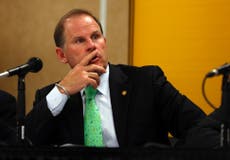
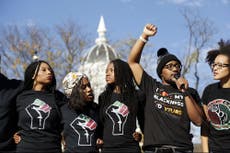
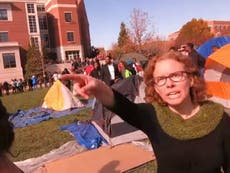
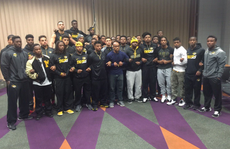
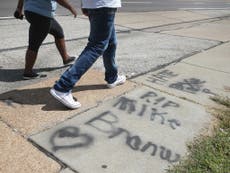
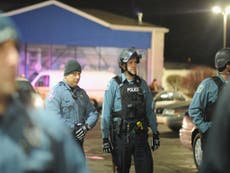
Join our commenting forum
Join thought-provoking conversations, follow other Independent readers and see their replies